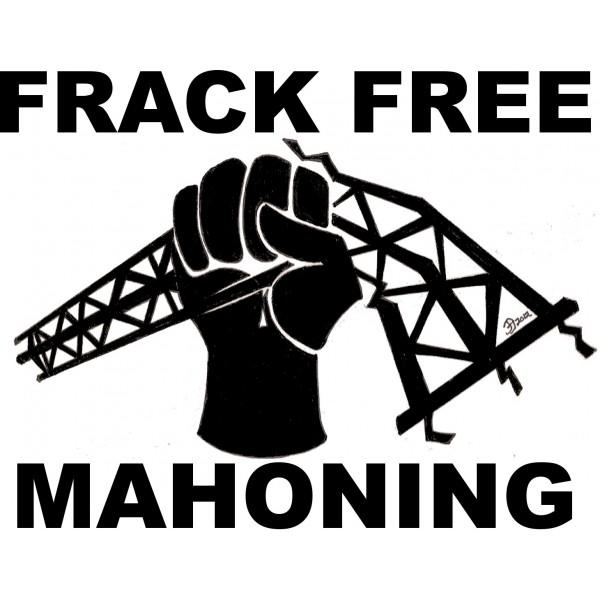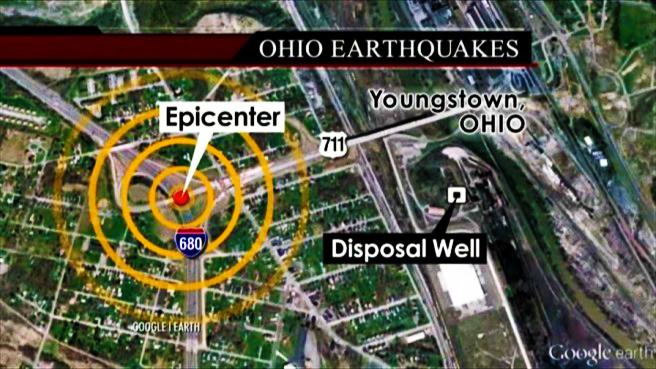
Cross Posted from Frack Free Mahoning
They’re back and more determined than ever to win on election day in November 2013. The Youngstown, OH, Community Bill of Rights Committee is coordinating a new door-to-door campaign to get the required number of registered Youngstown voter signatures to put a question on the November ballot.
The group says that a “Yes” vote on that ballot question would uphold Youngstown citizens’ fundamental rights to protect their family’s safe drinking water, clean air and land, and to local self-governance.
“We came so close to winning last time that we fully expect to win the vote in November. In this past May’s election, we only needed eight percent more to pass the Community Bill of Rights charter amendment. We had almost 3,000 Youngstown voters who did the right thing by voting ‘Yes’ and that is very impressive and very good news. We thank them,” said Youngstown resident Lynn Anderson.
The group believes that the increasing number of high-profile scientific findings, government reports, news reports and claims by people living near fracking-related operations is awakening more and more people to the need for a Community Bill of Rights to help Youngstown prevent dangers, civil rights violations and risks associated with fracking and related processes, infrastructure and millions of gallons of fracking waste.
“Nationwide and locally there are unconventional fracking wells and heavy industrial infrastructure that are way too close to homes, schools, parks, cemeteries, farms and forests. Millions of gallons of our precious drinking water are being made permanently unusable due to the massive amounts of water used to frack each well. Each well pad can have numerous legs that can also be fracked,” said organizer Susie Beiersdorfer. “How can these heavy industrialized operations be permitted so close to homes, farms or residential areas? This is not right. We need local control to protect our community’s public health and safety and to enforce how we want our communities to be. When the Community Bill of Rights passes in November 2013, fracking and related activities will be banned in Youngstown as violations of the community’s fundamental rights.”
The Community Bill of Rights Committee points to unconventional fracking going on in the protected area of this local region’s drinking water, a source for at least 200,000 people as a risky activity and one that should never have been allowed to occur. They wonder how the state could have permitted fracking operations so close to a source of drinking water, the Meander Reservoir Drinking Water Source Protection Area.
The group cites an example from nearby Weathersfield Township of what could come to Youngstown if the Community Bill of Rights does not pass in November. An unconventional horizontal fracking well operation was placed very close to Westwood Lake Mobile Home Park residents, many of whom are retired. Since then, residents have experienced diesel fumes, vibrations so strong that pictures on the wall moved, continuous noise, bright lights and other nightmares that severely, unfairly and adversely affect their quality of life. Recently, Westwood Lake residents had to contend with extreme noise and air quality issues from flaring of the well:
“Think about it. What if this was your mother, grandmother or another family member being forced to endure this unfair and unhealthy situation? We need to protect our loved ones from this kind of unjust intrusion and threat to public health, safety, and well-being. This is America. We can do better than this. In America we all equally deserve liberty and justice—fairness is not just for the few,” said Beiersdorfer.
The Community Bill of Rights Committee and supporters say that a “Yes” vote will protect our inalienable rights and clarify that local elected authorities do indeed have the power—and the duty—to protect their constituents’ public health, safety and well-being in their jurisdiction. The fundamental rights of local communities cannot be legislated away by state governments. The Community Bill of Rights will be a much-needed return to the rule of law.

The group cites the earthquakes as another big concern for our area and other states. New important scientific information on the seismic implications of the now-famous 4.0 magnitude Youngstown fracking waste injection well-related earthquake adds to their case in exposing the hazards of the fracking industry.
The group will soon announce a newly revised website where visitors can volunteer, donate or get further information about the Community Bill of Rights. For more information about how you can help with this effort call 234-201-0402 or e-mail [email protected].

